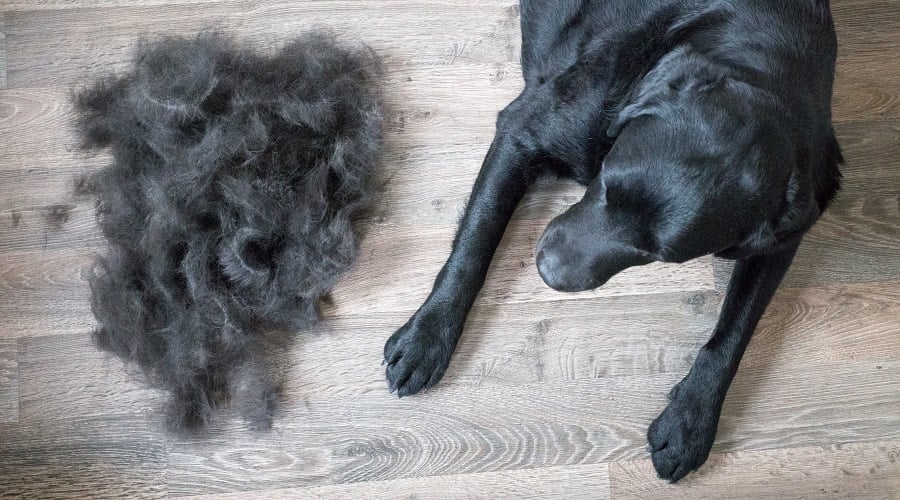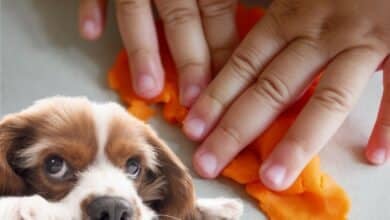My Dog Just Ate an Orchid! Are Orchids Toxic To Dogs?
When you purchase through links on our site, we may earn a commission. Here’s how it works.
Orchids are common houseplants around the world, prized for their arcs of elegant, often colorful flowers. In recent years they have become much more widely available through commercial florists and are now popular houseplants. Some varieties can also be planted out in the garden, and some may be found growing in the wild.
Table of Contents
As with any plant, though, these bright flowers may draw your dog’s interest. It’s not uncommon for dogs to eat things that they shouldn’t, flowers included. There are many flowers that are toxic to dogs, including hydrangeas, and oleanders. But what about orchids?
If you come home and find that your canine companion has eaten orchid petals or orchid leaves, it’s understandable to be worried. Thankfully, most orchids are not harmful to dogs. But there may be some problems caused by them to be aware of. Let’s examine how you should react to an orchid-eating pup and what to watch for.
What Is An Orchid?
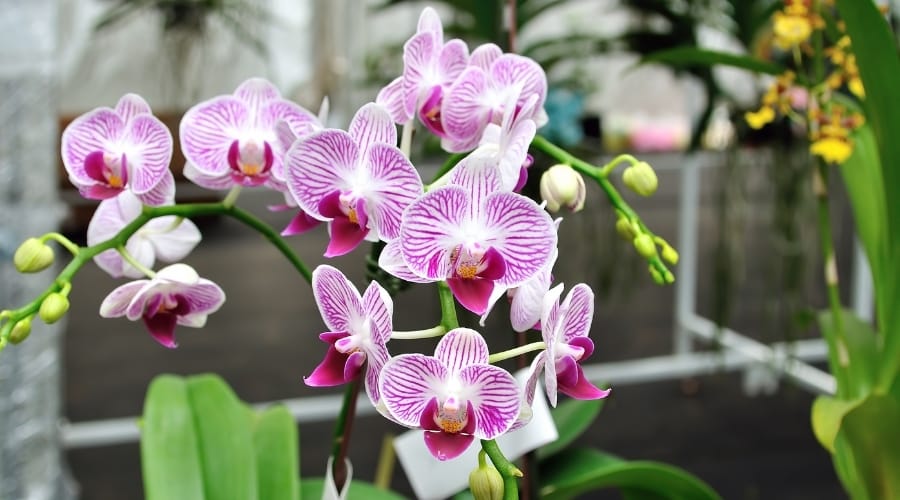
An orchid is any plant that is a member of the Orchidaceae family. The word “orchid” conjures up an image of a beautiful, exotic-looking flower, often brightly colored and with dark glossy leaves, but there are a huge variety of plants contained within this family.
Tens of thousands of different species of orchids have been found across the world. Common species of orchid kept as houseplants or garden plants include:
- Phalaenopsis – “Moth Orchids”
- Cypripedium, Mexipedium, Paphiopedilum, Phragmipedium, and Selenipedium – “Slipper Orchids”
- Cattleya
- Dendrobium
- Vanda
- Oncidium – “Lady-Dancing Orchids” or “Golden Shower Orchids”
- Miltonia – “Pansy Orchids”
- Phragmipedium
- Odontoglossum – “Butterfly Orchids”
- Cymbidium
- Ascocenda
- Cambria (Also called Vuylstekeara)
Are Orchids Toxic To Dogs?
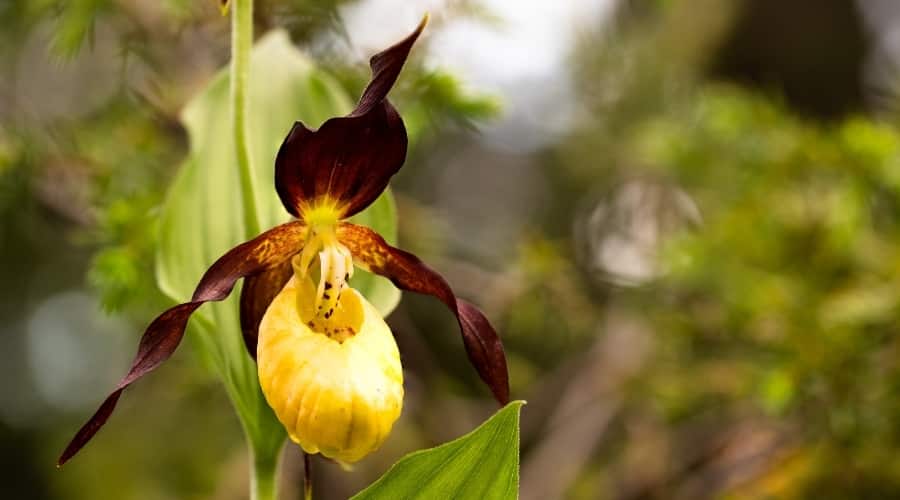
Beautiful things in nature can also be deadly, but thankfully this is not the case with orchids. Most varieties of orchids are not poisonous to dogs, so if Fido has eaten orchid leaves or orchid flowers, they are unlikely to suffer any long-lasting effects. However, there are some exceptions to the rule- so read on.
Beware The Lady Slipper Orchid
There are several flowers that aren’t toxic to dogs, but they have close cousins that do. Examples include the lilac versus the Chinaberry tree and certain hibiscus plants. The orchid is the same.
There is one orchid variety that can sometimes cause problems: Cypripedium, or “Lady Slipper Orchids.” These may be grown as decorative flowers in gardens and can also be found growing out in the wild in a wide range of habitats, from open meadows to shady forests.
These plants can cause a nasty rash in dogs and humans, similar to poison ivy. If your dog tries to eat these orchids, they may develop itchy red skin on their face or sore areas inside their mouth. This may cause them to drool a lot.
Consider The Bark, Compost, And Pot
Indoor orchids are usually grown in pots containing bark or other potting material. If your pup chews or swallows bark, it may irritate the mouth, throat, and gut. In rare cases, if too much bark is eaten, then this can lead to an intestinal blockage, a serious condition that usually requires emergency surgery.
Consider Fertilizer Ingestion
Fertilizers are often recommended for orchids to boost their growth and encourage them to flower. However, some types of fertilizer can be toxic to canines if enough is eaten.
Bark, compost, and fertilizer might not sound like tasty treats to humans, but in my experience, some dogs will eat almost anything! I’ve seen some nasty stomach upsets after dogs have chewed or eaten these kinds of things, so be sure to keep a close eye out.
My Dog Ate An Orchid. What Should I Do?
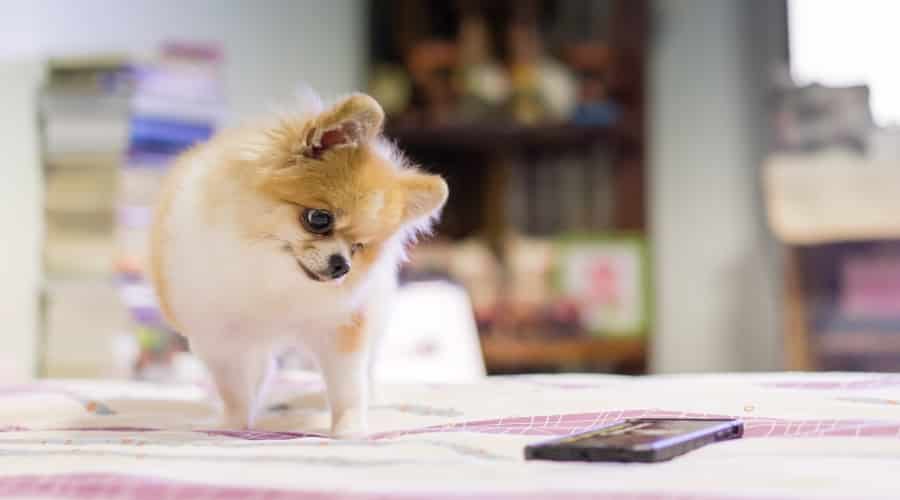
If you know or suspect that your dog may have eaten orchid leaves or orchid flowers, there are simple steps you can take to try and limit potential negative side effects. Follow the simple steps below so that you can help ensure Fido’s safety.
Step #1: Remove the Orchid Plants
Take the orchid plant away from your dog so they cannot eat any more of it. If they will let you, gently check inside his mouth and remove any leaves, petals, bark, or compost that may still be in there.
Step #2: Look For Skin Allergies
If you notice a rash, then wash the area with clean, warm water to remove the plant material from their skin. You should wear waterproof gloves when doing this to prevent the plant material from touching your skin, as it may give you a rash, too.
Step #3: Call Your Veterinarian
Call and speak to your veterinarian. If you can let them know what species the orchid is and any fertilizers that you may have used, then this will help them to advise you on what needs to be done next.
Step #4: Follow Your Vet’s Instructions
Follow any instructions your vet gives you. They might ask you to call the poisons information service for further advice. Please do this if asked. The poison helpline is staffed by experts in toxins who may be better able to determine the species and toxicity of an orchid.
What Happens If My Dog Eats An Orchid?
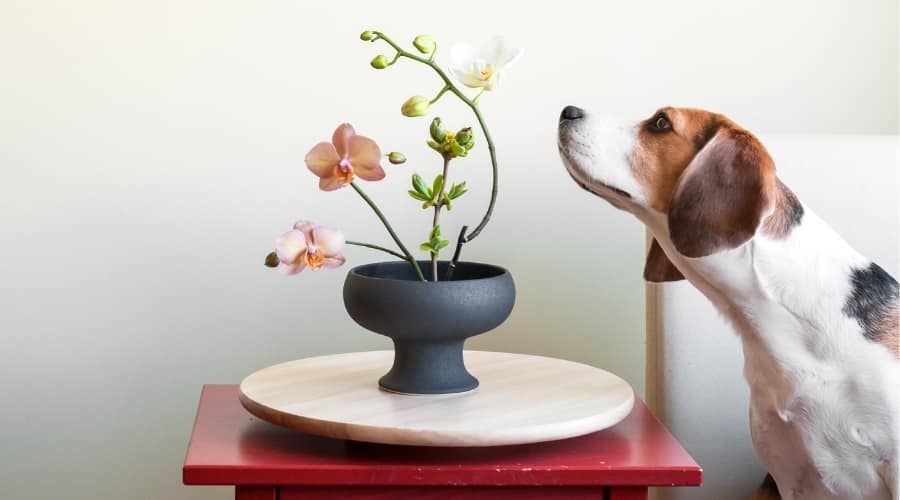
If your dog eats orchid flowers or orchid leaves, you should call and speak to your veterinarian. If they are concerned about the amount of orchid or compost that was consumed, they may suggest making your dog vomit.
This is usually done by giving them an injection. This then causes your dog to bring up most of the contents of their stomach. They might be sleepy for a while after this injection and drool more than normal. But, this generally passes within a few hours.
Please do not attempt this at home unless your vet asks you to. Generally, it’s not needed to cause regurgitation with orchid ingestion, and you’re putting them at unnecessary risk by doing so. If your pup has eaten pieces of bark, these can get stuck in the gullet on the way back up again, causing far greater problems.
If Fido develops red itchy skin or sore areas in his mouth from a Lady Slipper Orchid, your veterinarian may give you medication to soothe their skin. This will also help relieve the pain in his mouth.
Will My Dog Be OK If He Ate An Orchid?

Orchids are not poisonous to dogs, so eating an orchid is very unlikely to kill a dog. Lady Slipper Orchids can cause a rash and sores inside the mouth, which may be uncomfortable for a while afterward. Your veterinarian may be able to prescribe some medication to make your canine companion more comfortable.
Whenever dogs eat something new or different, there is a risk that it may upset their gut. Your pup might have some vomiting or diarrhea for a few days after eating the orchid. If you are concerned, you should contact your veterinarian for advice.
Preventing Orchid & Plant Ingestion
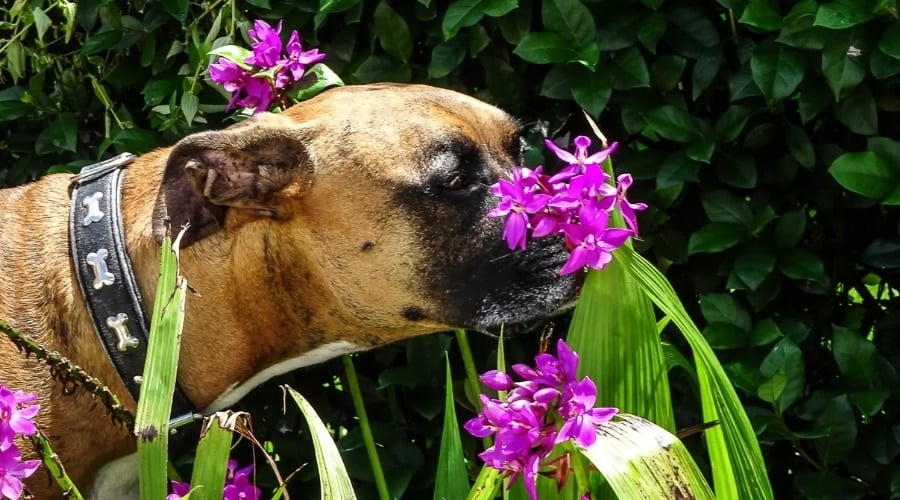
I’ve seen a lot of cases where dogs have eaten things that they shouldn’t, and there’s one thing that almost all of them have in common – their owners always say, “Well, he’s never done that before!”. Even the most angelic dogs can get into mischief if they are bored enough – so don’t risk it!
One of the most common reasons for dogs to chew or eat something in the house is because they are bored. They can’t play with their phone or watch TV, so they may try to find other new things to keep them occupied. These are some easy things to check to make sure their mind is staying busy:
- Exercise: Make sure they are exercised enough.
- Mental Stimulation: Mental stimulation is just as important as physical exercise.
- Dog Toys: Provide them with a range of different types of toys to play with.
- Brain Games: Use puzzle feeders or food-dispensing toys to make your pup work for meals.
- Crate Training: Crate train, especially if your pup is prone to chewing or eating plants.
Dogs can also chew or destroy objects at home because they are stressed. If you think your dog may be suffering from anxiety or stress, speak to your veterinarian or a qualified pet behaviorist for further advice.
If your dog likes to eat plants when they are out on a walk, then speak to a dog trainer about teaching them to leave things alone. You could also consider using a muzzle to prevent them from eating things they find when they are out.
In rare cases, dogs will eat unusual things, like plants, stones, or wood, because they have a nutrient deficiency. If it’s typical that they consume uncommon items or have any long-term issues with vomiting or loose stools, then speak to your veterinarian for advice.
Frequently Asked Questions
Are orchids safe for dogs?
Most orchids are not toxic to dogs. However, a few varieties known as “Lady Slipper Orchids” may cause soreness on the muzzle, mouth, or gums when eaten. Additionally, any new food may cause a stomach upset (vomiting and/or diarrhea). If your dog has eaten an orchid or has any of these symptoms, speak to your veterinarian for advice.
Are orchids edible?
Some varieties of orchids are eaten by humans. The most common of these is vanilla, which is a seed pod from one particular orchid that originally comes from Mexico. However, they are not recommended as part of a dog’s regular diet.
Why does my dog eat plants?
There are many reasons why a dog may eat plants. Common ones include boredom, anxiety, or (in puppies) because they are teething. If your dog regularly tries to eat plants, speak to your veterinarian for advice.
What types of orchids are safest for dogs?
Common varieties of house orchids, such as Phalaenopsis, are not toxic for dogs, so if you wish to keep orchids in your house, then they are a good choice. However, they should be kept out of reach of your pets.
Final Thoughts
The orchid might be beautiful, but it’s not for canine consumption. While orchids aren’t toxic like other plants, there are better flower choices for your garden. Many dog-safe flowers are less likely to cause gastrointestinal upset in your pup. Always keep a keen eye on your pup when they are venturing someplace new. If you are ever concerned about something that was eaten, make sure to contact your veterinarian with questions.
